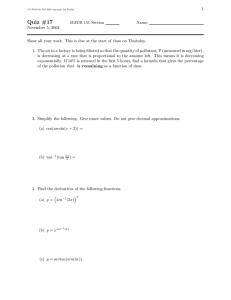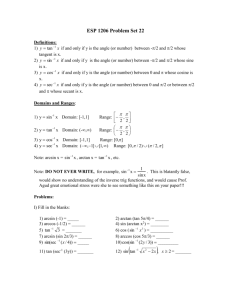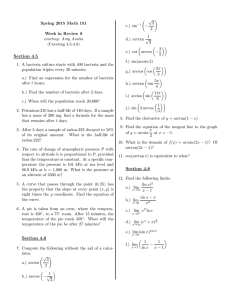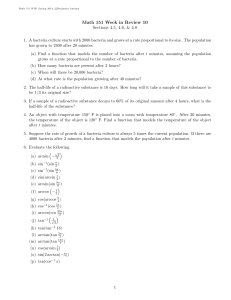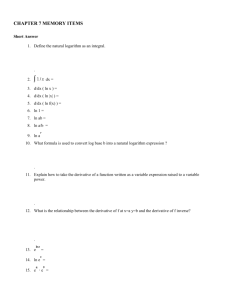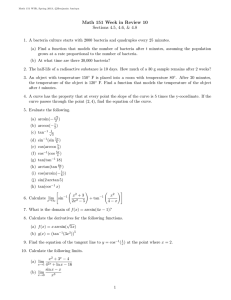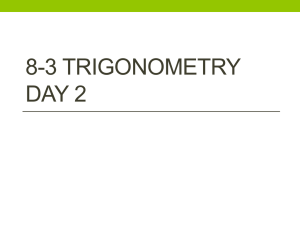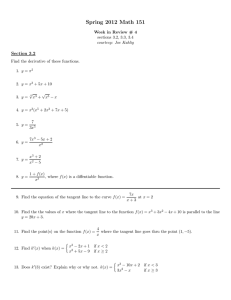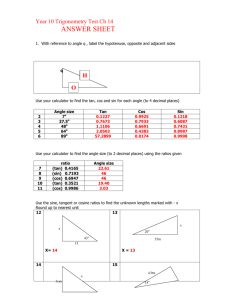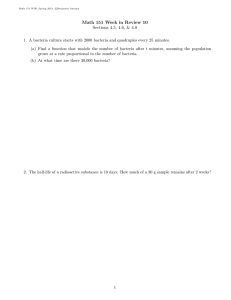Spring 2012 Math 151 Section 4.5
advertisement
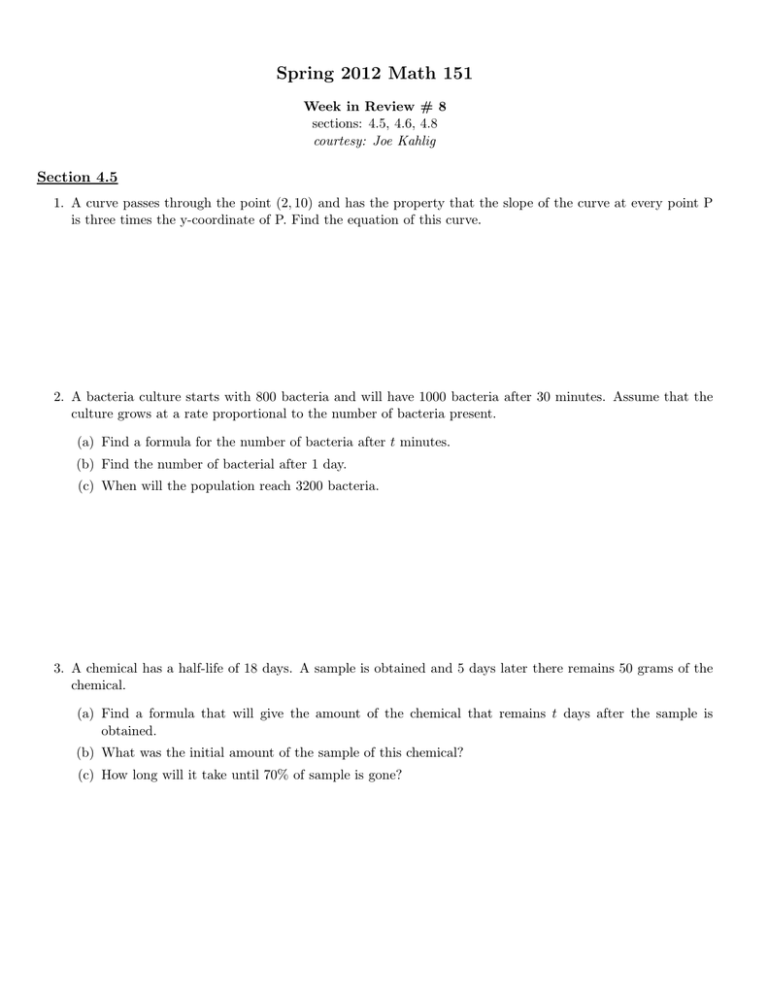
Spring 2012 Math 151 Week in Review # 8 sections: 4.5, 4.6, 4.8 courtesy: Joe Kahlig Section 4.5 1. A curve passes through the point (2, 10) and has the property that the slope of the curve at every point P is three times the y-coordinate of P. Find the equation of this curve. 2. A bacteria culture starts with 800 bacteria and will have 1000 bacteria after 30 minutes. Assume that the culture grows at a rate proportional to the number of bacteria present. (a) Find a formula for the number of bacteria after t minutes. (b) Find the number of bacterial after 1 day. (c) When will the population reach 3200 bacteria. 3. A chemical has a half-life of 18 days. A sample is obtained and 5 days later there remains 50 grams of the chemical. (a) Find a formula that will give the amount of the chemical that remains t days after the sample is obtained. (b) What was the initial amount of the sample of this chemical? (c) How long will it take until 70% of sample is gone? 4. A turkey is taken from a 350◦ F oven into a room with a temperature of 80◦ F . Fifteen minutes later, the turkey is 250◦ . Use Newton’s Law of cooling to solve this problem. (a) Find a formula that will give the temperature of the turkey at time t. (b) What will the temperature be after 40 minutes? Section 4.6 y = arcsin(x) = sin−1 (x) means sin y = x and −π π ≤y≤ 2 2 y = arccos(x) = cos−1 (x) means cos y = x and 0 ≤ y ≤ π y = arctan(x) = tan−1 (x) means tan y = x and −π π <y< 2 2 5. Find the exact value of the following without the aid of a calculator. (a) sin−1 (b) arccos −1 2 = √ − 2 2 = √ (c) arctan(− 3) = (d) tan (arctan (1.25)) = (e) sin arcsin π 2 (f) sin−1 sin π 2 (g) sin−1 sin 11π 9 = = = = = (i) arctan tan 17π 10 −5 13 (h) arccos cos (j) tan arccos (k) sec arctan (l) sin 2 arctan 16π 9 2 3 = 2 3 = = 6. Write tan(cos−1 3x) without any trig functions. Derivatives of Inverse Trigonometric Functions 1 d sin−1 (x) = √ dx 1 − x2 −1 d cos−1 (x) = √ dx 1 − x2 1 d tan−1 (x) = dx 1 + x2 −1 d cot−1 (x) = dx 1 + x2 7. Prove the derivative rule for y = tan−1 (x). −1 d csc−1 (x) = √ dx x x2 − 1 1 d sec−1 (x) = √ dx x x2 − 1 8. Find the derivatives of the following. (a) y = tan−1 (5x) (b) y = x2 arcsin(x2 ) (c) y = (cos−1 (7x))3 Section 4.8 sin(x) − x x→0 x3 9. lim ln(x + e3x ) x→∞ 2x 10. lim ex + e−x x→0 x2 11. lim 12. lim x→∞ x2 x2 − x−1 x+5 13. limπ (2x − π) tan(x) x→ 2 14. lim xx x→0+ 1 15. lim (1 − 5x) x x→0 !
